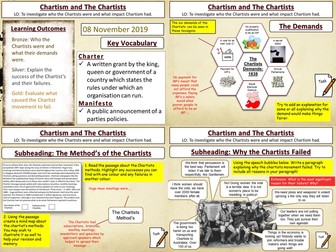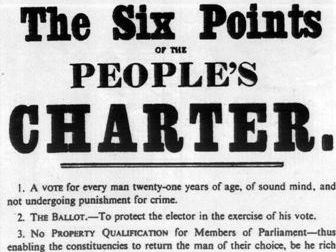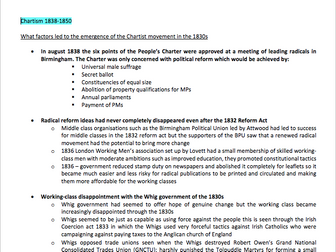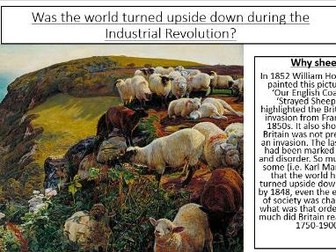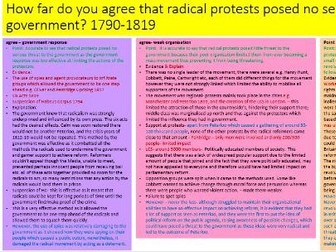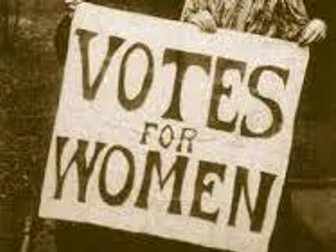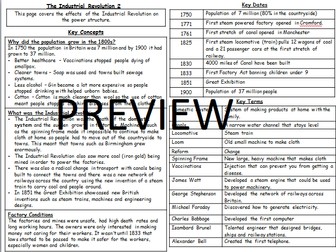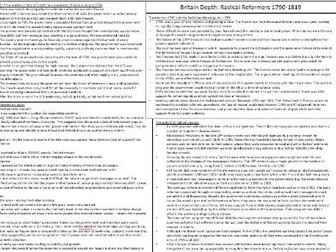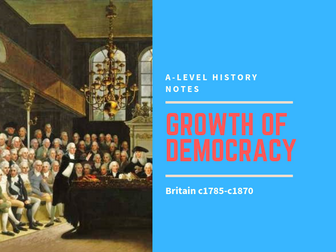
Extending the Franchise: The Chartists & Chartism
Power & the People lesson on the Chartists. In this lesson we introduce the Chartists and Chartism. We then look at what the demands of the Chartists were and how they believed they would make for a fairer electoral system. We then examine the methods of the Chartists and how they were successful at spreading their message. We then look at the failure of Chartism and examine the reasons for this before finishing with how significant the movement was in the end. Included in the lesson is:-
Question starter around Secret Ballots
Activity on the Chartists Six Point Demands
Video Clip
Activity examining the methods of the Chartists
Writing activity on the failure of Chartism
Question on the significance of Chartism.
Hope this helps
https://www.tes.com/teaching-resources/shop/markthegeographer
